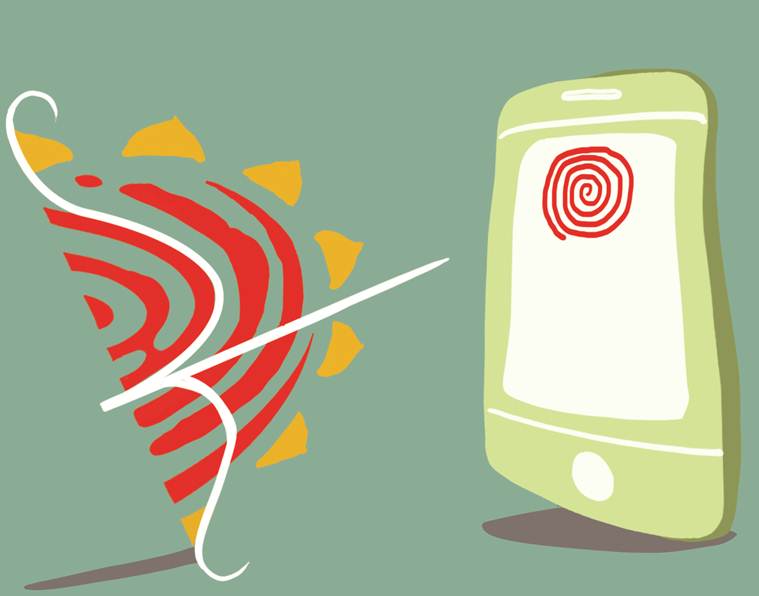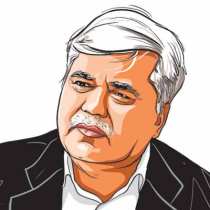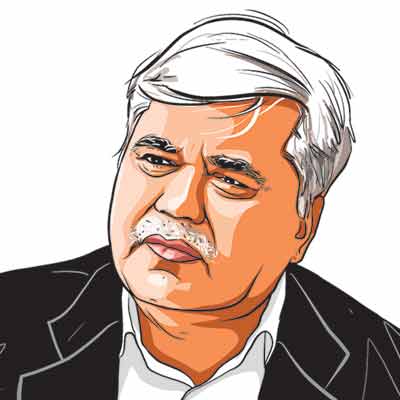Trusting Aadhaar
Investment in technology and care for privacy helped UIDAI clinch its case

The Court has found that data collected by UIDAI is minimal and there are adequate safeguards in maintaining the data securely within itself.
“It is better to be unique than the best. Because, being the best makes you the number one, but being unique makes you the only one.” — Justice A K Sikri in the introduction to the majority opinion, writing for Chief Justice Dipak Misra, himself and Justice A M Khanwilkar.
Last year, the Supreme Court held that the right to privacy is a fundamental right protected as an intrinsic part of the right to life and personal liberty. Today, the Court has ruled that the Aadhaar framework is in consonance with constitutional provisions, including the right to privacy. This judgment is an endorsement of the years of hard work that have gone into developing Aadhaar.
Long before the petitioners moved the Supreme Court or activists weighed in with their opinions, Nandan Nilekani, the then chairman of Unique Identification Authority of India (UIDAI), on May 18, 2010, highlighted the requirement for a comprehensive data protection law to the prime minister. Recently, a committee headed by Justice Srikrishna submitted its report and a draft law to the government.
Right from the initial days, without a dither and without waiting for a mandate forced upon it by someone else, UIDAI decided to bake security and privacy requirements into the design of Aadhaar. It adopted state-of-the-art data protection technologies and the principles of privacy by design, which makes Aadhaar inherently resistant to any breach. This foresight has helped UIDAI overcome the legal hurdles that may have otherwise stymied this pioneering initiative.
The Court has found that data collected by UIDAI is minimal and there are adequate safeguards in maintaining the data securely within itself. It has also determined that Aadhaar doesn’t enhance the capability of the state to mount surveillance of its citizens. These should be reassuring words for the common citizen who would like to freely use Aadhaar for accessing government benefits and services.
The Court has pointed out that the citizens have socio-economic rights that arise from human dignity itself. Indeed, every citizen has a right to identity, and all citizens have a right to efficiency in the delivery of government services, whether they are the beneficiaries of such services or not.
The detractors of Aadhaar have often argued that citizens get excluded from their entitlement because of difficulties in biometric authentication. But the Court hasn’t found evidence of greater exclusion with use of this technology. Therefore, using compelling state interest as the yardstick, it has determined that the government is within its rights to ask for Aadhaar authentication while granting benefits or where there is a need to uniquely identify the citizen, for example, in filing income tax returns.
In a democracy, legal challenges are welcome. They test the validity of actions on the touchstone of constitutional rectitude. They provide assurance to everyone, including the sceptics, that the way forward is based on law and meets constitutional guarantees. It is often the case, paradoxically, that everyone declares victory when the highest court of the land pronounces a definitive judgment. In my opinion that is entirely appropriate, and constructive.
Important judgments of the highest court are seldom one-sided because the issues they deal with are too complex to be treated in a binary manner. They point out what is legitimate and what isn’t. They draw the line and previous adversaries are free to shift their position, if they left themselves some wriggle room, and get on the right side of the law.
Personally, this is an important judgment on two counts. It validates years of hard work put in by a team of pioneers, with whom I had the privilege to work. And it also endorses the use of technology in governance to empower and benefit the common man.
This judgment, because it is final, now unlocks the benefits of an easy-to-use, digital identity for our citizens, especially those who are poor and marginalised. There can be no greater satisfaction for a public servant, who has played some part in building this digital infrastructure, than witnessing this happen.
The team that conceptualised and executed the project at UIDAI has often received brickbats in the recent times. How I wish we could be together this evening, to kick off the shoes and reflect upon life with a sense of satisfaction!
The writer is the chairman, TRAI. Views are personal
For all the latest Opinion News, download Indian Express App
More From R. S. Sharma
- Dak babu as bank-tellerWorking closely with people for more than 150 years, the Dak Seva has earned their trust and respect...
- Truth fears no trollsNothing was hacked and no harm done because I gave out my Aadhaar number. There is a concerted effort to discredit Aadhaar...
- Why I gave out my Aadhaar numberThe point behind it is simple: Aadhaar does not contribute to increasing any of your other digital vulnerabilities..








































No hay comentarios:
Publicar un comentario